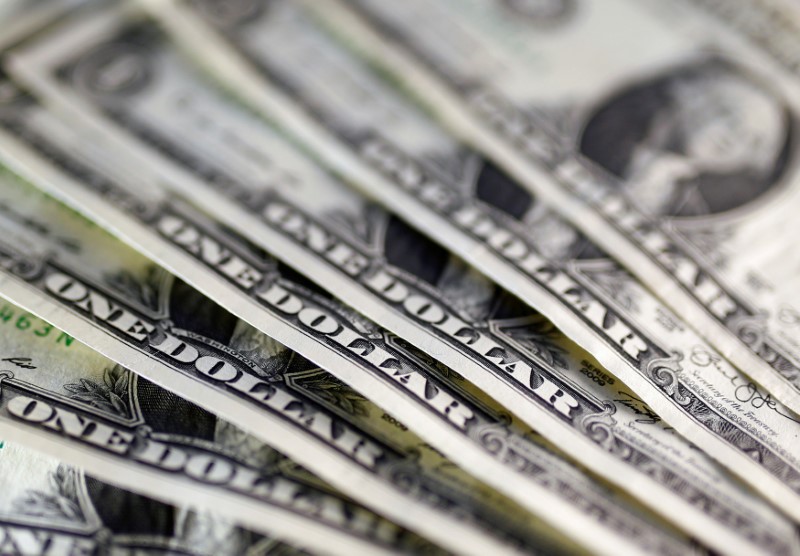Investing.com - The U.S. dollar fell Friday after consumer sentiment declined to its lowest level since October 2016 as U.S.-China tariff concerns hit domestic spending.
The University of Michigan’s consumer sentiment for August came in at 89.8, which was below expectations for a reading of 92.3. The lower final reading was mainly due to tariff concerns, said Richard Curtin, chief economist in charge of the survey.
“Unlike the repeated tariff reversals, negative trends in consumer sentiment cannot be easily reversed,” he said.
Large moves between the preliminary and final Michigan sentiment numbers for one month are unusual.
The U.S. dollar index, which measures the greenback’s strength against a basket of six major currencies, was at 98.442 as of 10:40 AM ET (14:40 GMT), not far from an earlier low of 98.380.
The Japanese yen, which is seen as a safe haven in times of market turmoil, rose, with USD/JPY falling 0.3% to 106.15.
Meanwhile, U.S. President Donald Trump lamented the euro falling against the dollar as he once again criticized the Federal Reserve for not cutting rates as much as he would like.
“The Euro is dropping against the Dollar “like crazy,” giving them a big export and manufacturing advantage...and the Fed does NOTHING!” Trump tweeted.
